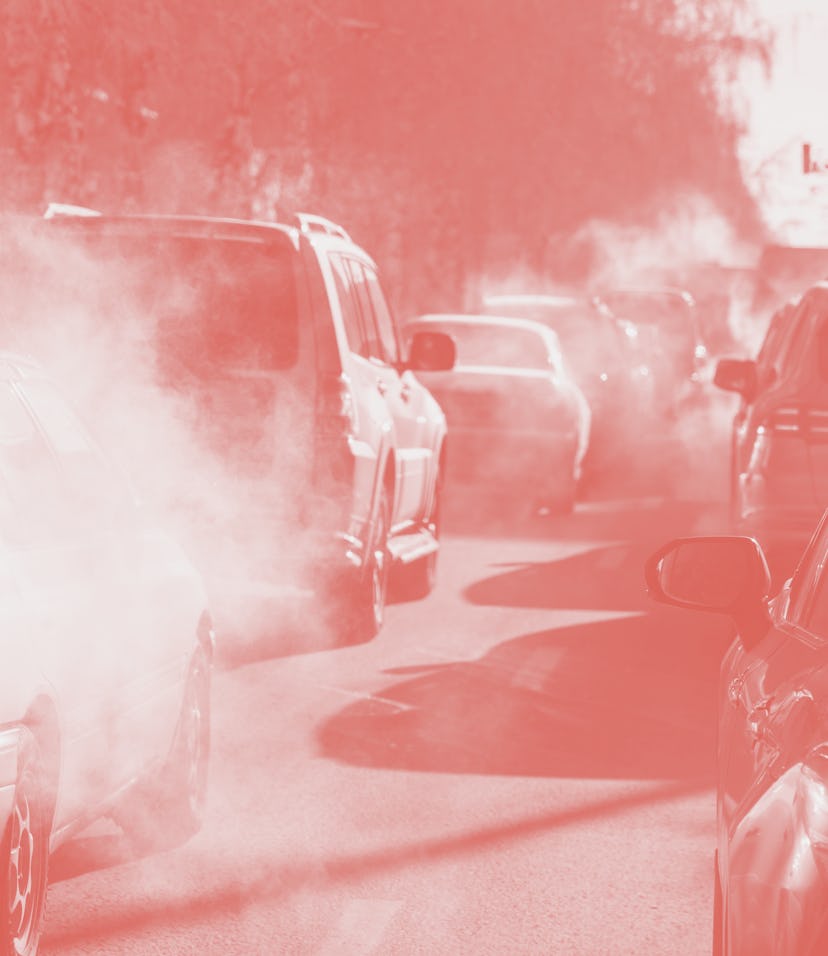Climate Change
Trump accelerates climate change by loosening fuel economy requirements
You can save money on a new car, so that’s worth spending more money on gas and boiling the oceans, right?

The Trump administration announced a new rule on Tuesday that benefits gas-guzzling vehicles. The Safer Affordable Fuel-Efficient (SAFE) Vehicles Rule will affect cars made from 2021 to 2026 and completely reverses the restrictions the Obama administration put on fuel economy. By the new administration’s own calculations, the rule will increase carbon dioxide emissions by anywhere from 876 to 923 million metric tons. The move makes good on a three-year-old promise from Trump to support the auto industry.
Bad math — The administration claims the social and economic benefits of the policy change outweigh the environmental impact. But of course it does. The Trump administration has repeatedly demonstrated its disdain for environmental regulations — especially those that in any way threaten the profitability of big business — and, as the ongoing coronacrisis demonstrates, it's disregard for both mathematical facts and the experts who try to give them prominence.
“The federal government’s math still doesn’t add up after all these months of trying to retool and rework their rule,” California attorney general Xavier Becerra told Reuters. By easing up on fuel-efficiency rules, the administration believes customers will save roughly $1,000 when buying new vehicles. Buyers can enjoy those sweet savings as the change also ushers in the consumption of an additional 2 billion (approximately) barrels of fuel. Which is great while consumers are cash-strapped and oil prices are low, but less useful when temperatures rise and the ice caps melt.
Not a lot fans — A coalition of more than 20 Democratic-led states and environmentalist organizations are expected to challenge the rule in the U.S. Court of Appeals for the District of Columbia Circuit. The administration is already locked in a weirdly anti-states’ rights battle with California, which intends to enforce stricter emissions policies no matter what. Some automakers have backed Trump, while others have made deals with California.
Thanks to low gas prices and a shift in preferences, more people are buying trucks and SUVs than sedans or hatchbacks, so creating smaller, lower-emission vehicles — or electric ones — is financially draining for legacy U.S. automakers. Meanwhile, though, Europe is embracing more compact vehicles and EVs thanks to increasingly stringent emissions regulations. Regression in the U.S. could affect U.S. automakers' place in an international market that's increasingly diverging from it.
The initial draft of the new rule garnered 750,000 public comments, and public opinion is likely more in favor of clean air than ever amid the coronavirus crisis. Paul Billings, the national director of public policy for the American Lung Association told NBC News: “Sadly, the COVID-19 pandemic has brought into sharp focus lung health ... We know air pollution puts individuals at risk for lung infection.”
As is often the case, short-sightedness and corporate interests will likely result in longterm effects that could take a generation to undo... if they can be undone at all.